Interview: Path Of Exile's Synthesis Expansion Has You Piecing Together Fractured Memories (And Loot)
The last Path of Exile expansion, Betrayal, was a rousing success all around. Fans not only got a new league but also saw the return of several other leagues from the previous year, all integrated into the core game.
That would be hard for any game to follow up on, and while the next release doesn't add quite as much, there's still a lot going on that should draw hardcore players back into Wraeclast. A new story, new mechanic, revamping of spells, and a new approach to unique items are the key points of Synthesis, which releases in March. We got the scoop from Grinding Gear Games' Chris Wilson, covering not only the next expansion, but his company's plans for the entire year and beyond.
If you liked Betrayal, especially how it added content from previous expansions to the base game, you'll be glad to know that Betrayal will also become part of the Path of Exile content with the release of Synthesis. “It took a remarkable amount of work to get in place in the right ratios and all integrated in,” Wilson said. His team has a long-term plan about how it's going to handle all that content in the future, which we'll discuss later. For now, let's dive into the brand-new stuff!
Dismembered memories
The story of Synthesis revolves around Cavas (Latin for “hollow”), a ghost who's lost the memory of his previous life and appears in every area. You'll be tasked with piecing together the fragments of his memories, which you accomplish by passing through a portal Cavas opens and zooming through a zone to find the two to four memory stabilizers within. The shadowy walls are closing in as you do so, representing the decaying memory, giving you a limited amount of time to complete your goal.
When you complete an area and stabilize the memory, Cavas will give you some slight insight into his former life, which he now remembers. Wilson called Cavas “a very important character in Path of Exile's plot” and that Synthesis, like Betrayal before it, is a “very story-driven expansion.”
The larger meta-game of the expansion resembles a board game. When you stabilize a memory, you'll get a “piece,” you can place on a “board,” which starts with a few pieces already in play. Each piece has connecting paths and represents an area you can go to, with mods that affect monsters and loot found therein. You can play through these areas, or chains of areas, multiple times, but they'll eventually decay and become unusable, requiring you to acquire new ones from Cavas.
The farther you can travel on the board, the better the rewards. If you're really good at running things, you can recover Cavas' memories and unravel the mystery of his identity.
Some spaces on the board are Memory Amplifiers, which Wilson compared to double-letter spaces in Scrabble. Like those, they double the mods on a piece, so that a piece that might have +4% Monster Pack size and +6% Item Rarity become +8% and +12%, respectively. Wilson also compared the system to tile-placement game Carcassonne, with how you have to work with the pieces you get to try and build the right paths. In fact, Grinding Gear Games prototyped the concept with actual pieces from Carcassonne, “on the table over Christmas while having a barbecue.” Sadly, you can't place farmers in the empty areas for mega-points.
Grinding Gear Games prototyped the concept ... "on the table over Christmas while having a barbecue."
You do score, however, in Synthesis, in the usual Path of Exile way: loot. But what kind of loot you get and what you can do with it is different this time around. The base loot you get from finishing a fragmented memory is a Fractured item – which, as you can judge by the name, is “broken.” The first two mods are locked in place and can't be rerolled, which usually leads to a subpar item.
If you get three Fractured items of the same type – for example, body armor – you can feed them into the Synthesizer, which then spits out an item with implicit mods – the kind that are “locked” into a certain type of item – that are based on the items you put in.
What you'll get is part of a “convoluted formula that will take the players a while to work out,” Wilson said, and is sure to appeal to the min-maxing, spreadsheet-making crowd. Super-hardcore players will keep trying to tweak things to get exactly what they want, but even players who devote a minimal amount of time to the new content should be able to get something useful and unique. Wilson does acknowledge, though, that the more complex and esoteric aspects of Synthesis are “intentionally designed for existing players who understand the game.”
Spelling bee
Most PoE expansions usually come with some kind of reworking of previous mechanics, and Synthesis is no exception. The spellcasting revamp coming to the game was prompted by two “key problems,” as Wilson put it. The first was that players never cast spells “from their hands,” preferring instead to cast something else, such as a totem or mine or trap, that then casts the spells for them. “There were so many ways of casting spells by proxy that were better than actually casting spells that we really wanted to address that. The rebalance that we're doing is going to add more longevity to the game and give players more stuff to do over the long term.”
The other issue is an unsurprising one for a game that offers so many options: some spells are simply better than others, leaving a lot of subpar spells and skill gems that just take up space or are quickly bartered away. The idea behind the spell revamp is to ensure that spells are on a more equal footing, balance-wise – which, if I'm going to be honest, sounds like a bit of a pipe dream for a developer.
I asked Wilson about this, and he said that the dev team has “developed a relatively complex model that scores the various attributes of each spell in terms of damage timing, shape, elements, supportability, etc.” Nevertheless, he admitted that, “there will certainly be spells that are better than others in a metagame, but the difference is now substantially closer.”
Along with the spell revamp comes six new skills, including a new chaos skill, Soul Rend, which sends out slow-moving projectiles that damage enemies while near them. It represents a divergence from typical chaos spells, simplifying the concept of a chaos build for players who like the idea but are put off by the complexities of typical builds.
The dev team has "developed a relatively complex model that scores the various attributes of each spell in terms of damage timing, shape, elements, supportability, etc."
Another new spell is the game's first holy spell, Divine Ire, which has its own complex mechanic. It damages and “charges” up from nearby monsters before sending out a powerful bolt of fiery death. “The right way to play it is to charge up from half the monsters and then shoot the other half. Or charge up from the trash monsters and then shoot the boss,” Wilson said. “It's quite interesting from a gameplay point of view, and we like presenting players with challenges like that.”
Of the game's 16 new unique items, Wilson said there was a “design shift,” wanting them to be more impactful and stand out from the hundreds that are already in the game. Older uniques might provide useful effects, like changing fire damage to cold, but they wouldn't change how you play. You're still “whacking monsters,” as Wilson put it. “Our goal is to make it so that all the unique items we add have some kind of thing like that changes how you actually play your character in a meaningful way.” The one he showed off triggered a level 20 skill, Glimpse of Eternity, which slowed monsters in your immediate vicinity when you're struck.
Rotating Gears
It's been a special focus of Grinding Gear Games to try and grow the community over time – a central point of the talk Wilson will be giving at GDC next month – and the company plans to still be out there, still making content for 20-plus years, with over “70 to 100 releases,” which Wilson compared to how Magic: The Gathering has survived and thrived for so long.
That prompted another question: Magic rotates out its sets on a regular basis, so players don't have to know how to play with or around cards from 10 to 20 years ago. Now that Path of Exile is incorporating older content into the core game, is that a direction the game will go, so that players aren't tripping over NPCs wanting them to solve their problems everywhere they go?
"We have a couple of bits of old league mechanics, where our plan is to paint them away in 4.0.0 and retire them, or maybe bring them back later in a new form."
“Our schedule does involve taking away content,” Wilson said. “We have a couple of bits of old league mechanics, where our plan is to paint them away in 4.0.0 and retire them, or maybe bring them back later in a new form. We only want to have 10 leagues' worth of stuff in the game at any time, so we'll pick the best ones and rotate them a bit.”
Wilson admitted would be controversial when it happened – nobody likes having their favorite content arbitrarily removed from a game – but it's likely going to be needed in the long run, to help keep the game manageable and help preserve both players' and developers' sanity. It's good to see that kind of forethought going into the long-term future of the game, and it's a model more companies could stand to emulate.
The past and the future
As anyone who's followed PoE's player numbers can easily tell, the game has been doing great since Betrayal's release. It boasted a daily average concurrency of “over 100,000 for a long period” and a peak concurrency of about 190,000 players, approximately 40,000 more than the previous record – and that's not counting Chinese, Taiwanese, or Xbox players, which would push the numbers up even further. While the expansion spikes are obvious from the game's Steam Charts numbers, Betrayal has retained those numbers much better from any previous content releases.
2019 is shaping up to be a banner year for the game, as well. Four expansions, including Synthesis, are on the docket, dropping in March (Synthesis), June (3.7.0), September (3.8.0), and December (3.9.0). That last expansion will be announced at ExileCon in New Zealand in November, along with the announcement of the 4.0.0 “mega-expansion.” If you can't attend in person, don't despair; all the important news will be streamed. There are also “a few other secret projects” in the works, which Wilson said should add up to “quite a challenging year.”
Synthesis launches March 8 on PC and March 11 on Xbox One. For the PlayStation 4, the full release of the game, along with Synthesis will occur in mid-March. It was originally planned for December, but as Wilson put it, “it's really had to get games certified over Christmas!” As a result, Grinding Gear Games decided to hold off, not wanting to release the game on PS4 in the middle of a league. The wait will be worth it.
Related Articles
About the Author

Jason Winter is a veteran gaming journalist, he brings a wide range of experience to MMOBomb, including two years with Beckett Media where he served as the editor of the leading gaming magazine Massive Online Gamer. He has also written professionally for several gaming websites.
More Stories by Jason WinterRead Next

Torchlight Frontiers is shaping up to be one of the most anticipated free-to-play game releases of 2019.
You May Enjoy

Update 4.5 will be full of changes based on player feedback.

They’re all coming out this year.

An updated version of the game is available through the Internet Archive.

I keep wanting to log back in.
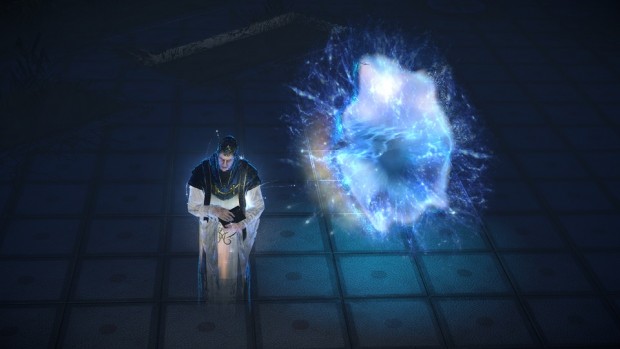
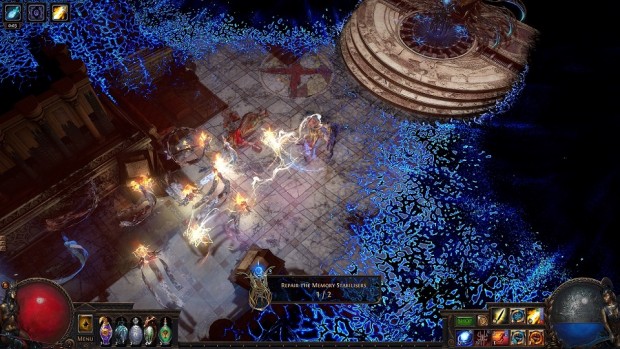
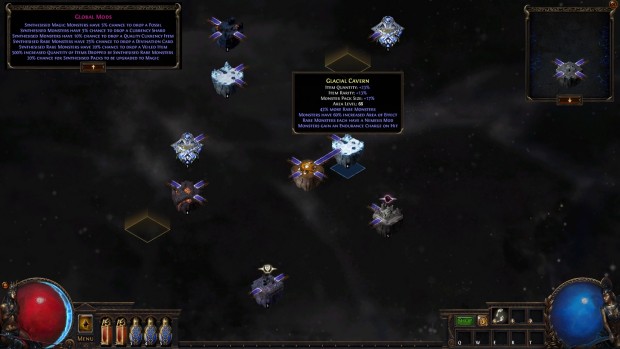
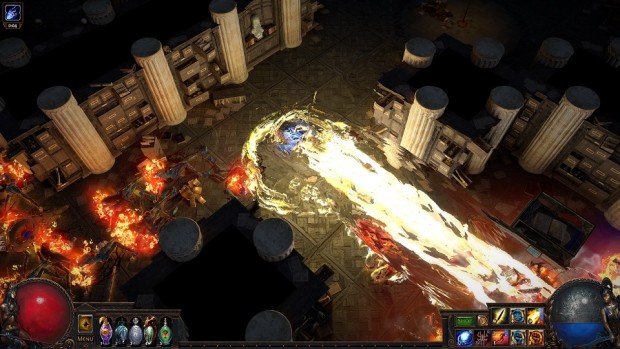
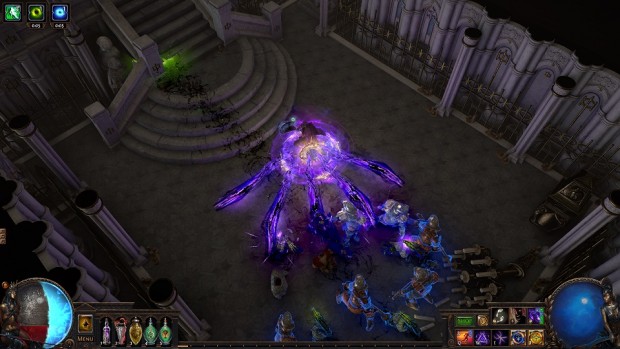
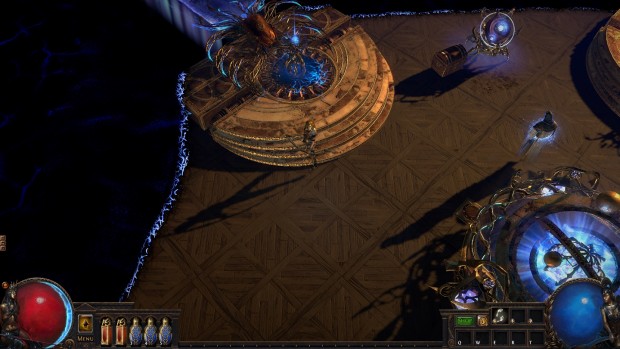
Discussion (0)